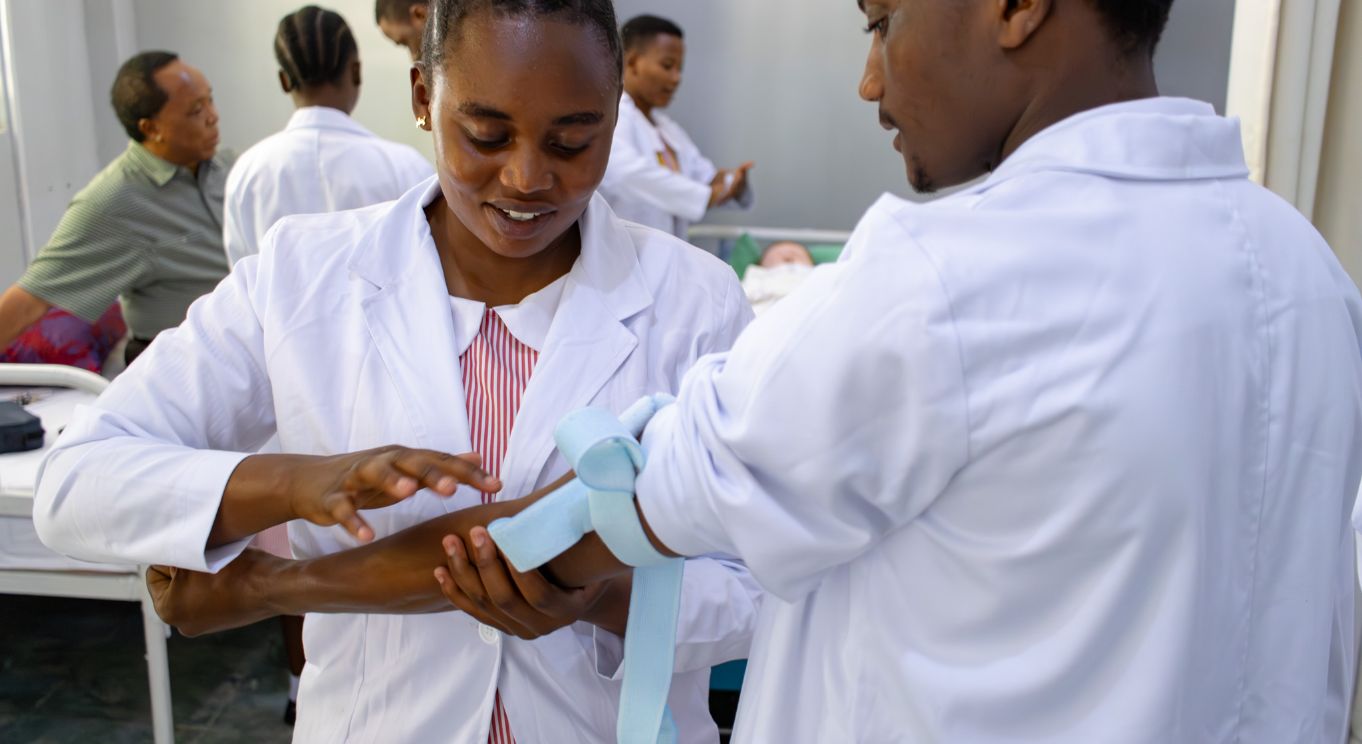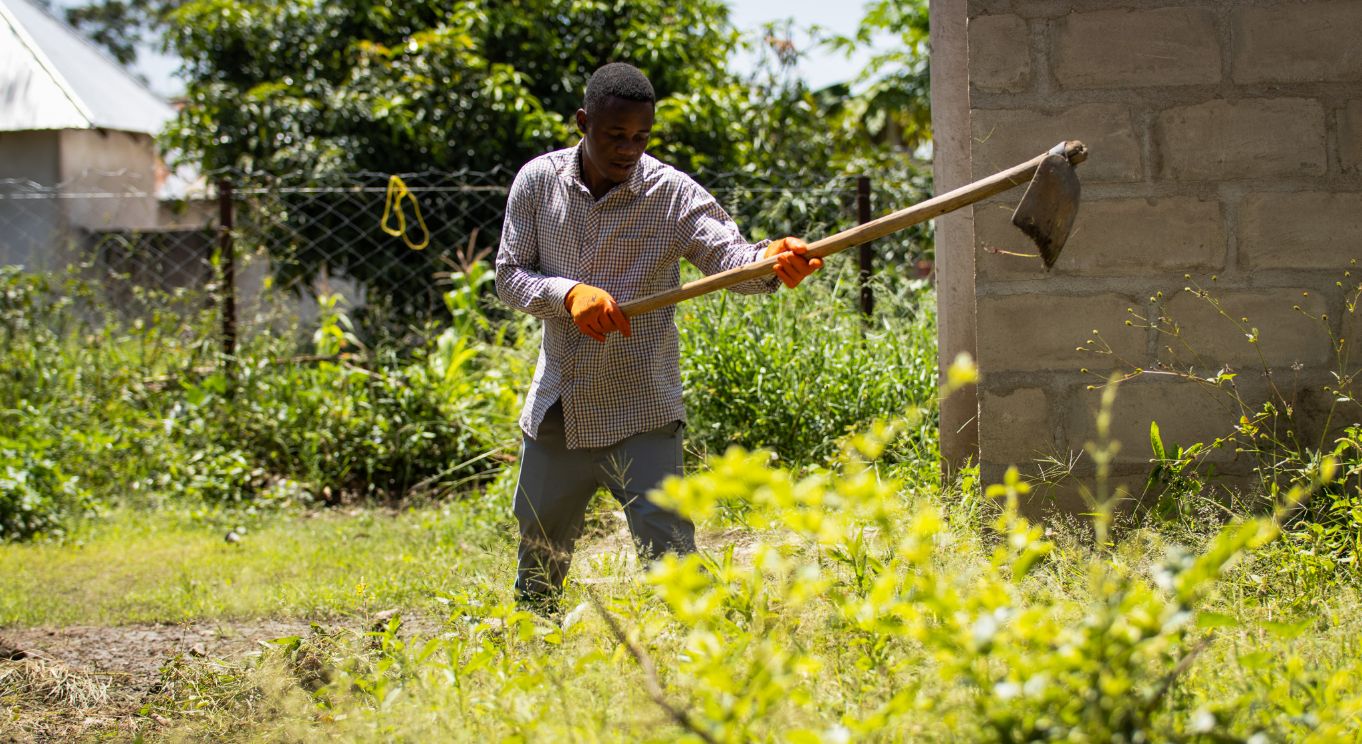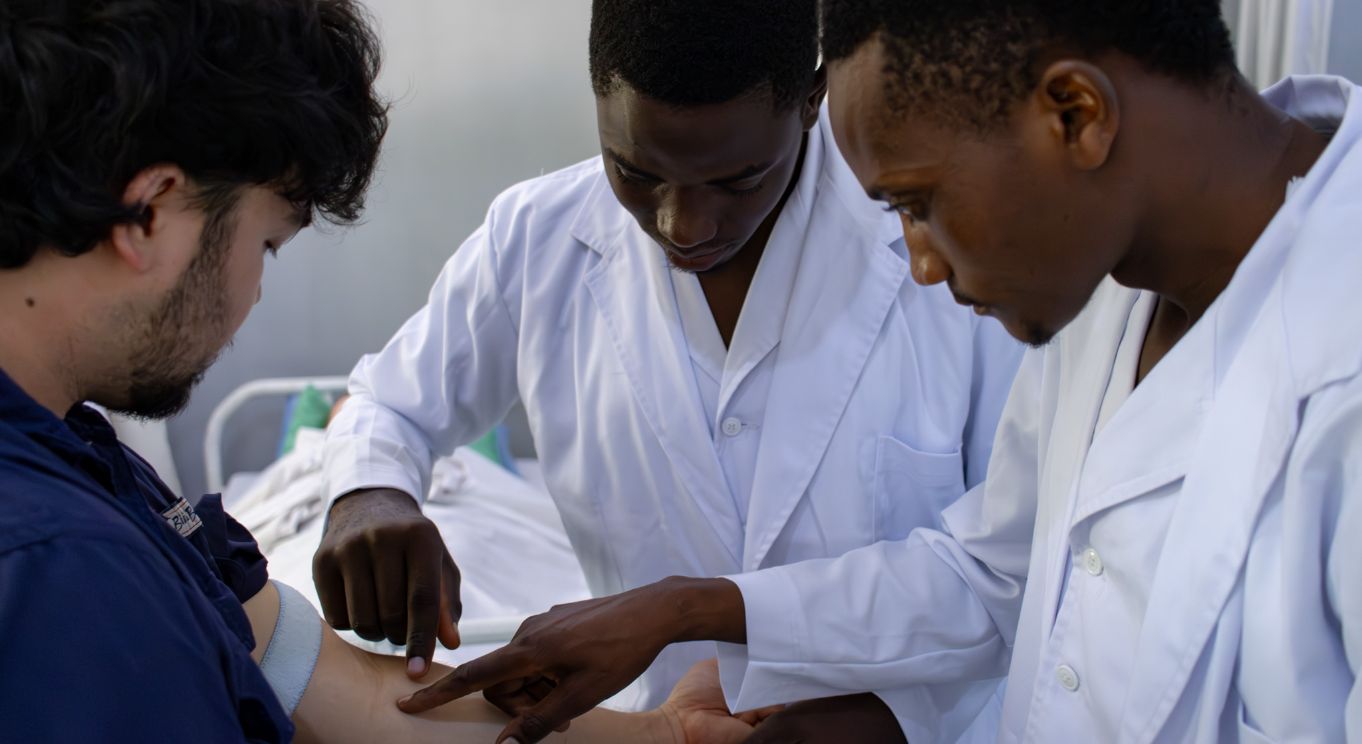Mizpah Health Institute, a newly accredited nursing college in Misungwi District of Mwanza, sits on the outskirts of Tanzania’s second-largest city—where only a short drive separates urban hardship from rural poverty.
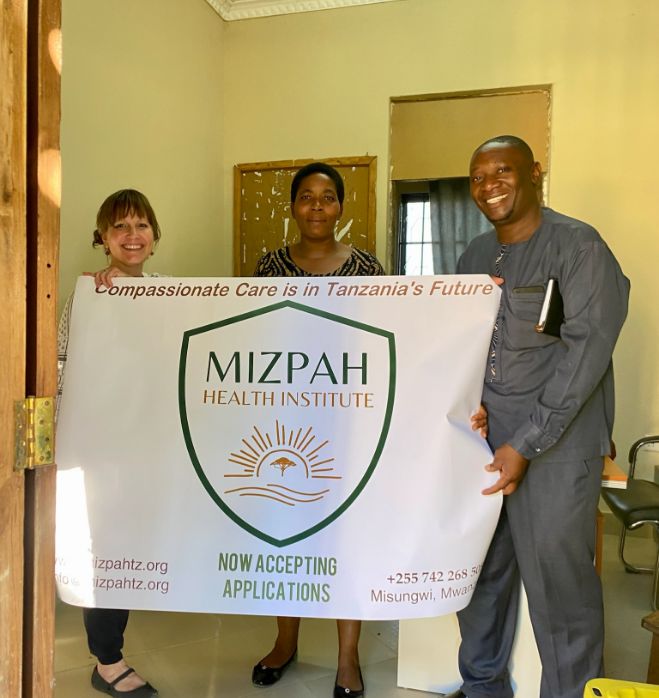
Help Us Fund This Project
Your donation goes directly to training more nurses and improving healthcare. Every new donation made by December 4 will be matched!
The Foundation of Our Program
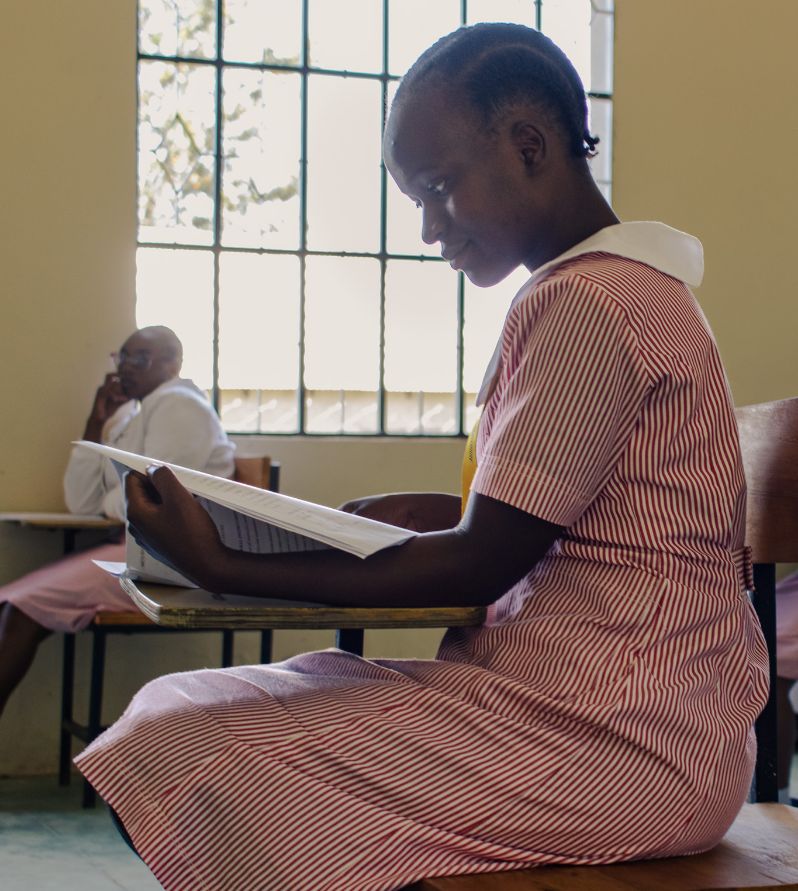
Curriculum Matters
The Compassionate Care model was adapted from a curriculum shared by James Taylor, now retired, who served as a professor of philosophy at Westmont College, School of Nursing. It is an evidence-based approach to bring compassion into healthcare. Provision of compassionate care education will address currently harsh conditions or practices that lack kindness within the Tanzanian medical system.
The initiative has been welcomed by local Tanzanians who believe it will address these needs within the community. Tanzania Nurses and Midwives Council (TNMC) requested a partnership to bring the curriculum to every nurse in Tanzania.

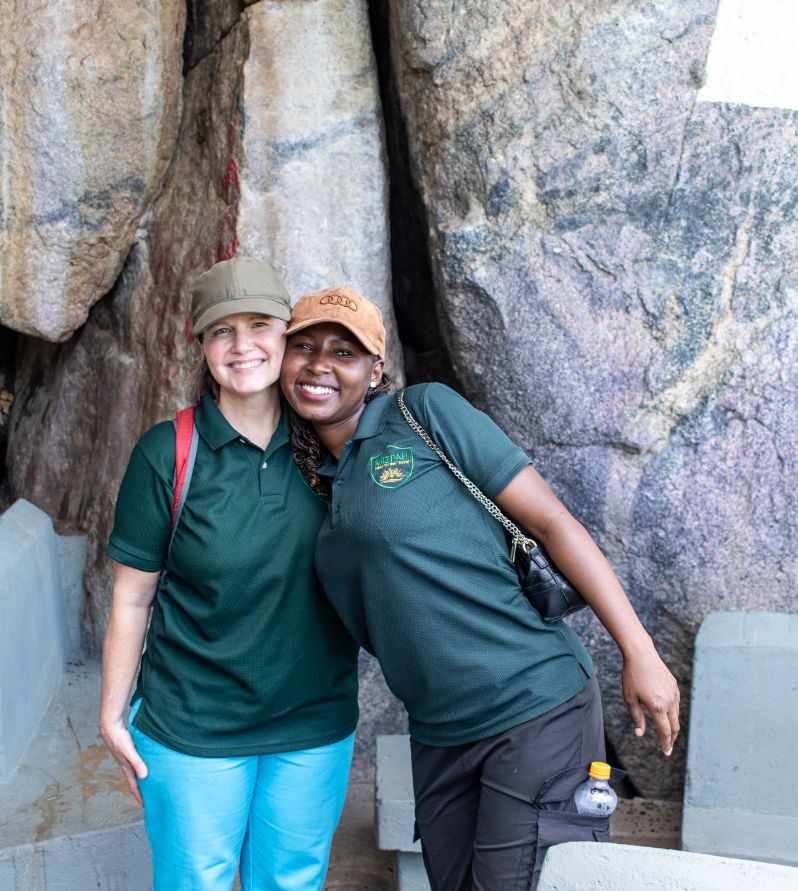
Community Resilience
Serve the Community
MHI’s approach integrates healthcare education with community development, addressing not just physical health but also educational, spiritual, and emotional needs. This holistic approach builds stronger, more resilient communities.
Return to Community
Graduates are encouraged to return and serve their communities, ensuring that the benefits of their education extend beyond individual gains to community-wide improvements.

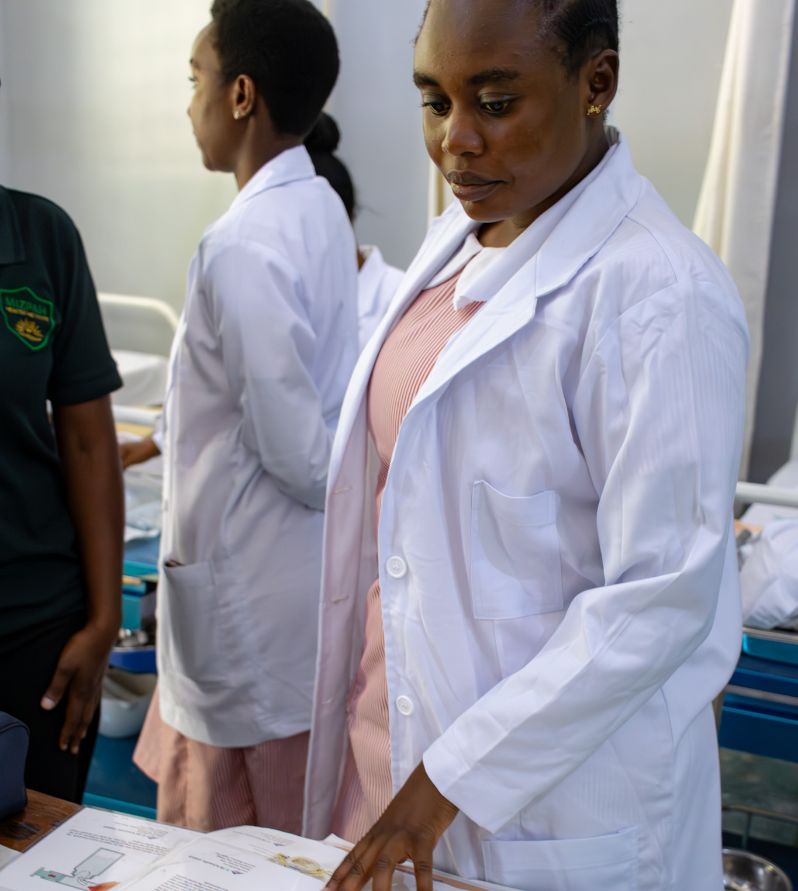
Community Health Needs
Rural and Urban Poverty
Misungwi, on the outskirts of Mwanza, experiences significant poverty, primarily rural. The area needs skilled healthcare professionals to improve health outcomes and provide quality care to its residents.

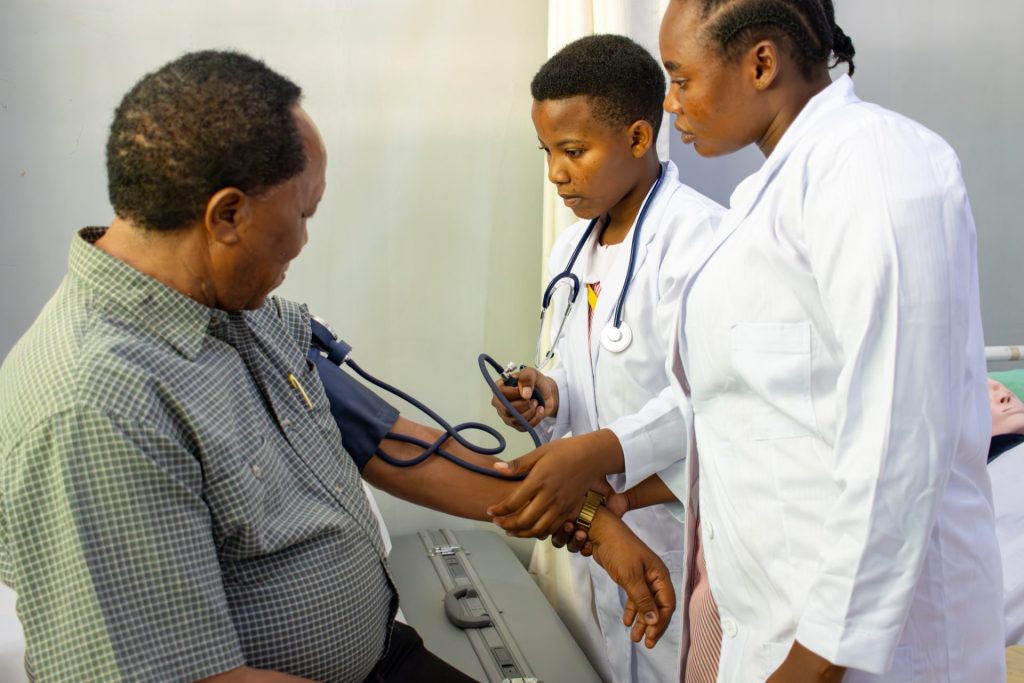
Healthcare Access
Establishing MHI in Misungwi ensures that local and surrounding communities have better access to healthcare services. This is particularly important in regions where healthcare facilities are scarce.

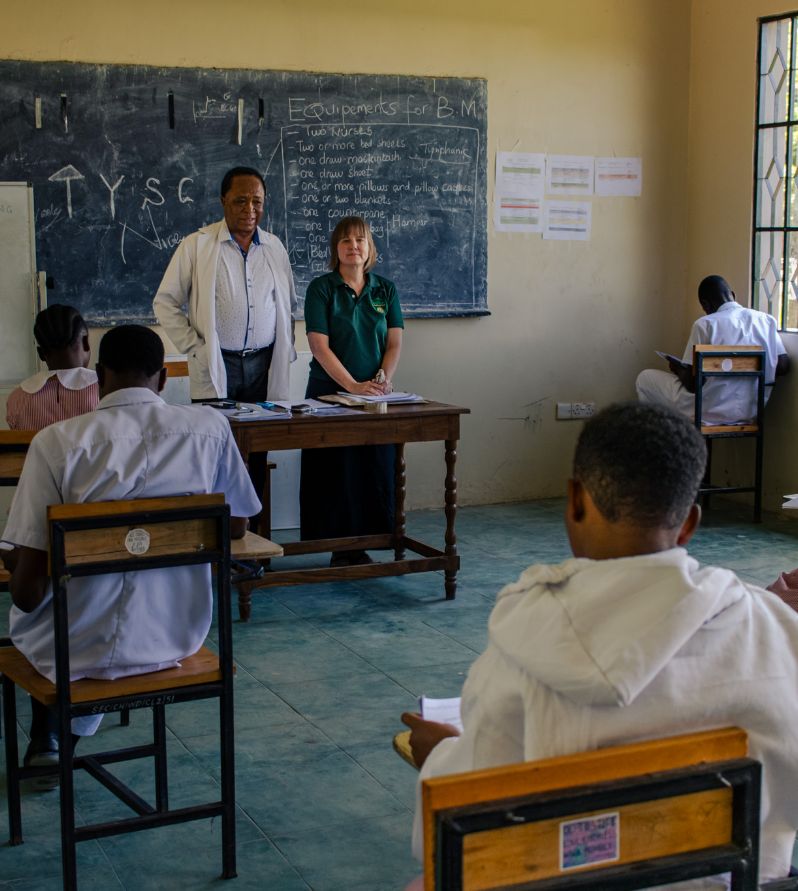
Health Care Shortages
Nursing Shortage
Tanzania faces a severe shortage of healthcare workers, especially nurses. The nurse-to-patient ratio is drastically low, with each nurse responsible for 25 to 30 patients daily, compared to the WHO recommendation of 1:4 to 1:6.
Training Facilities
The country graduates only 400 general nurses annually, with only 10 specializing in critical care. This stark disparity highlights the urgent need for more training facilities to address this healthcare gap.

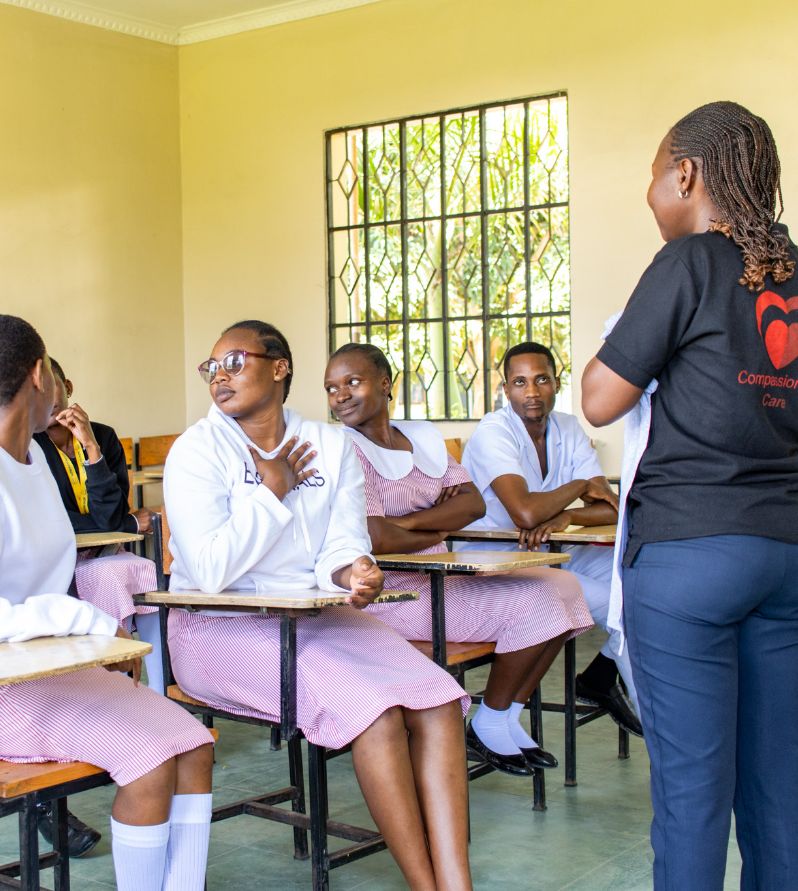
Educational Empowerment
Quality Education
MHI provides comprehensive training, equipping students with medical knowledge, skills, and a strong ethical foundation focused on compassionate care. This elevates the quality of healthcare education in the region.
Scholarships and Support
Through partnerships with organizations like Compassion International, MHI offers scholarships to vulnerable youth, helping them pursue nursing careers and empowering them through education.

Student Spotlight
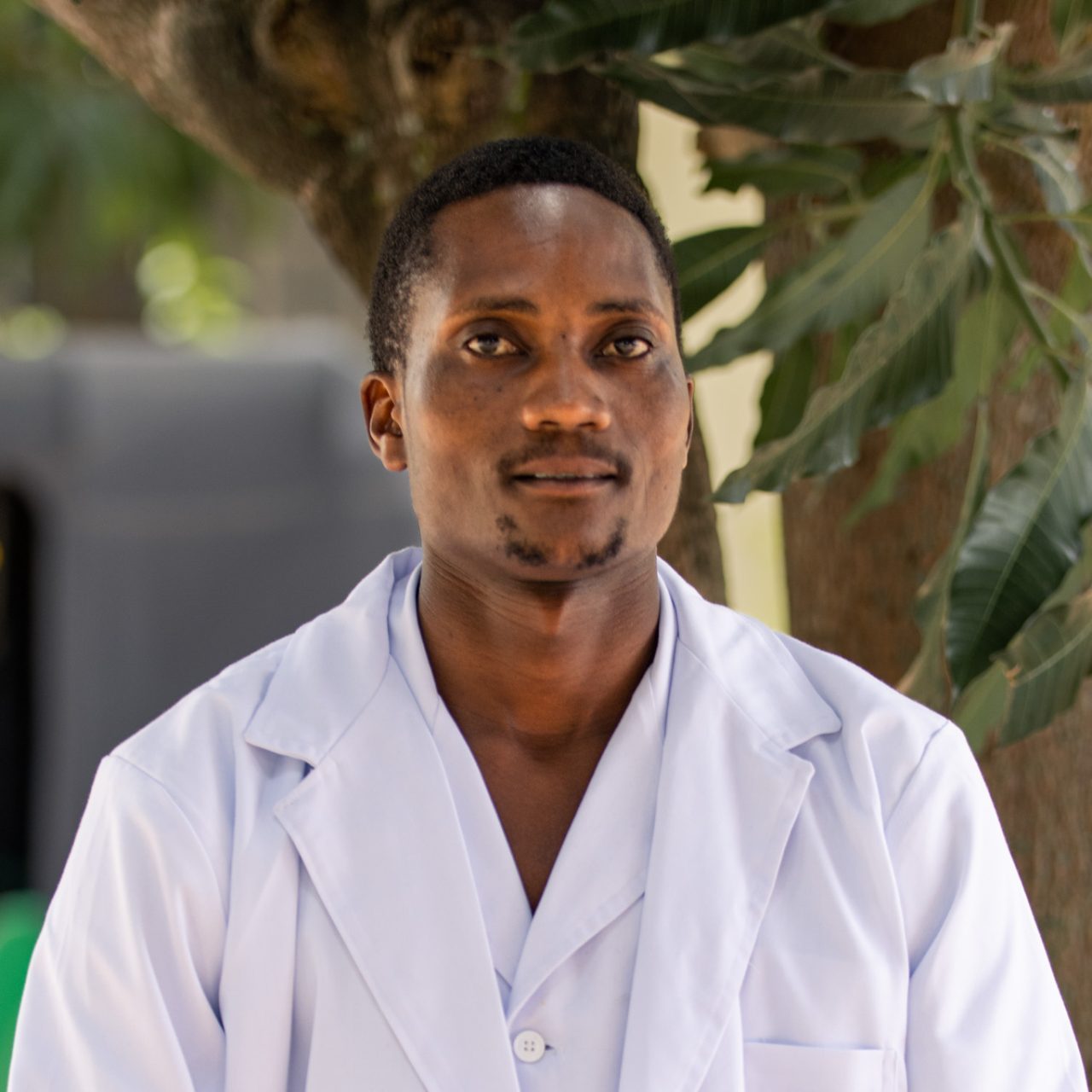
Frankie Irunde
“Nurses are the heart of the hospital...
...My goal is to be in a place to help people,” says first-year nursing student, Frankie Irunde. Beyond just a career, for Frankie nursing is a calling centered on treating every patient with dignity, irrespective of their background. Despite facing many obstacles, Frankie now aims to give back to his community as a nurse and potentially inspire future students as a professor.
Frankie chose MHI for its supportive atmosphere, focus on compassion, and affordable tuition. He showcases resilience and ambition, while working diligently to be part of the next generation fo compassionate healthcare professionals in Tanzania.


